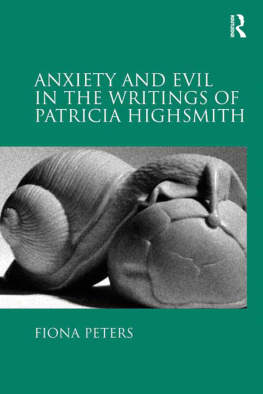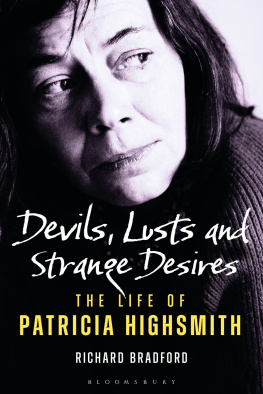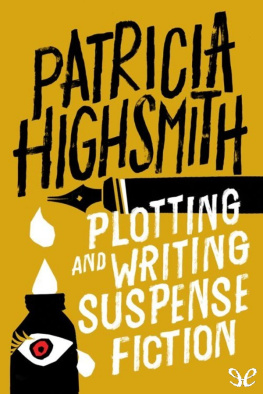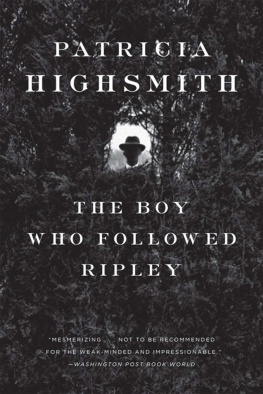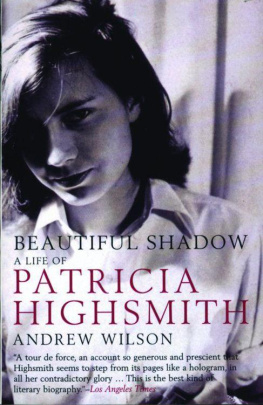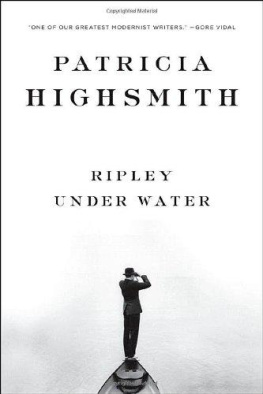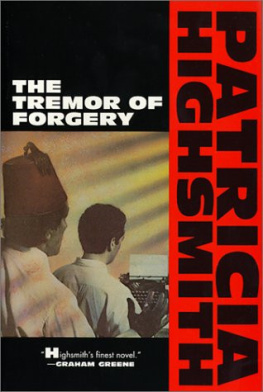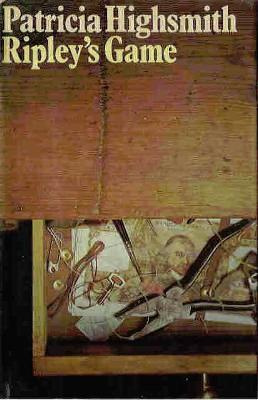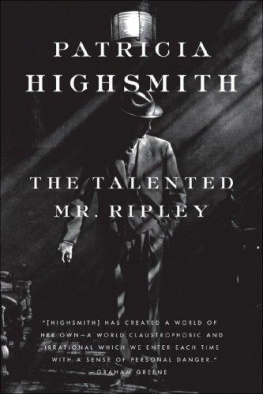ANXIETY AND EVIL IN THE WRITINGS OF PATRICIA HIGHSMITH
For Gary, Isabelle and Francis
Anxiety and Evil in the Writings of Patricia Highsmith
FIONA PETERS
Bath Spa University, UK

First published 2011 by Ashgate Publishing
Published 2016 by Routledge
2 Park Squre, Milton Park, Abingdon, Oxon OX14 4RN
711 Third Avenue, New York, NY 10017, USA
Routledge is an imprint of the Taylor & Francis Group, an informa business
Copyright Fiona Peters 2011
Fiona Peters has asserted her right under the Copyright, Designs and Patents Act, 1988, to be identified as the author of this work.
All rights reserved. No part of this book may be reprinted or reproduced or utilised in any form or by any electronic, mechanical, or other means, now known or hereafter invented, including photocopying and recording, or in any information storage or retrieval system, without permission in writing from the publishers.
Notice:
Product or corporate names may be trademarks or registered trademarks, and are used only for identification and explanation without intent to infringe.
British Library Cataloguing in Publication Data
Peters, Fiona.
Anxiety and evil in the writings of Patricia Highsmith.
1. Highsmith, Patricia, 19211995 Criticism and interpretation. 2. Anxiety in literature. 3. Evil in literature. 4. Psychological fiction, American History and criticism. 5. Detective and mystery stories, American History and criticism.
I. Title
813.54-dc22
Library of Congress Cataloging-in-Publication Data
Peters, Fiona.
Anxiety and evil in the writings of Patricia Highsmith / by Fiona Peters.
p. cm.
Includes bibliographical references and index.
ISBN 978-1-4094-2334-8 (hardback: alk. paper)
1. Highsmith, Patricia, 19211995Criticism and interpretation. 2. Anxiety in literature. 3. Evil in literature. I. Title.
PS3558.I366Z8 2011
813.54dc22
2011000192
ISBN: 9781409423348 (hbk)
Contents
Acknowledgements
I would like to thank the following for all their help and encouragement during the writing of this book: Debbie Thacker and the late Peter Widdowson at the University of Gloucestershire, for years of generous help, advice and support. The help I received from Ulrich Weber at the Swiss National Library, Bern, on my visits to the Highsmith Archive, was invaluable.
Thanks are due to my friends Margaret Breen, Belinda West, Suzanne Smith and Anne Greig, along with my sister Lorna Hurst, for always being willing to talk about Patricia Highsmith and for support and encouragement.
Bath Spa University supported the writing process throughout, while my friend and colleague Richard Stamp was always available for lively discussion on the theoretical aspects of the book. Thanks also to Penny Williams for cheerful willingness to help.
Special thanks to Gary Peters, for proof reading, comments, support and encouragement, and also for unwittingly setting me on this path by buying me a copy of Deep Water, and to my children, Isabelle and Francis, for putting up with me.
Introduction
The idea for this study developed from my own love of Patricia Highsmiths writing, mediated by my reflections upon exactly why I, since reading my first Highsmith novel (Deep Water), became fascinated with her rather than any of the other excellent writers who can be described (however loosely) as working within the crime fiction genre. While I can devour most crime novels, however mediocre, I found that Highsmith requires and deserves multiple readings; her texts are never about solving a puzzle, feeding the reader with clues at apposite intervals or allowing a reader to engage in amateur detection. Nor do they demonstrate an engagement with cultural and/or political issues; they are, like their creator, recalcitrant and unyielding, both in style and content. Highsmith is an enigma who deserves more than thedearth of critical material that her work has attracted.
The usual distinction between genres is largely unhelpful as far as Highsmith is concerned. The connected categories used to label her those of crime fiction, suspense, mystery and so on have, in effect, allowed a greater freedom of expression than even she may have realised. I will be examining selected examples from Highsmiths extensive literary output, texts that I have chosen to highlight and that develop particular themes and preoccupations to which she always returned.
, In the Waiting Room, brings together three of her early novels, set in (what she considered to be) the stifling suburbs of 1950s America: Deep Water (1957), The Cry of the Owl (1962) and This Sweet Sickness (1960). These novels each portray a sense of exile within small, close-knit communities. The protagonists in these novels exist, in qualitatively different ways, in what I shall describe as psychic waiting rooms; the void that constitutes them and marks them out from the surrounding community, having been, at the point where each novel begins, more or less successfully concealed within the social framework. Highsmith forces each of the protagonists out of their inertia by removing the ballast that, up until the beginning of the novel, has allowed them to function within the signifying community. The knot, in other words, is unravelled, and the safety of the waiting room is shattered. This chapter will explore the concept of the waiting room that I contend encapsulates the void of Highsmiths writing.
redemptive possibilities and is portrayed instead as a slow but unremitting descent into madness. This is contrasted to other novels in which women are portrayed in varying ways. The Price of Salt (written under the pseudonym Claire Morgan in 1952 and published under her own name as Carol in 1990) is Highsmiths lesbian novel and one that comes closest to her personal preoccupations. Found in the Street (1986) is one of her later novels in which the female characters are both central yet at the same time tangential to the male protagonists. The short stories from the collection Little Tales of Misogyny (1975) introduce disparate female characters identified by their (usually sexual) characteristics and rarely by name. Highsmith, in all of these texts except Carol, presents a particularly unpleasant and harsh vision of femininity, articulated through the over-determination of the punishments that the females of her texts undergo simply due to their fate as women.
, Tom Ripley: The Sinthome Writes Back, is divided into two parts, Watching the Detectives and The Contraction of the Heart: Tom Ripley and Radical Evil. In this chapter I will consider the Ripley novels separately from Highsmiths other work. From The Talented Mr Ripley (1955) through Ripley Under Ground (1970), Ripleys Game (1974) and The Boy Who Followed Ripley (1980) to the final novel in the series, Ripley Under Water (1991), Highsmith held fast to her talismanic protagonist, arguing that she would turn to another Ripley novel for light relief from her other, depressing work.
The introductory chapter will firstly examine the scant critical material on Highsmith already in existence, then outline the methodology that will be utilised throughout the book.
Critical Readings
Highsmiths work has proved impossible to categorise, either within the genre of crime fiction or that of serious literature. In other words, she is
Next page
